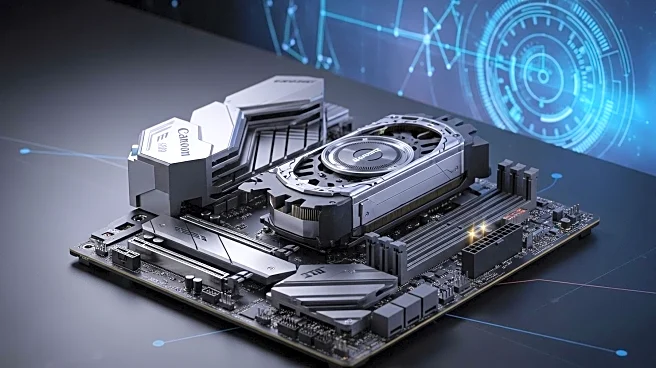What's Happening?
PC Gamer has identified a series of deals available during Amazon's Big Deal Days, allowing consumers to build a high-performance RTX 5070 Ti gaming PC. The proposed build costs $1,762, slightly more than the best prebuilt deal at $1,749, but offers better components including a preferred choice of chip, chassis, memory, and cooler. The build features Patriot Viper Venom DDR5-6000 RAM, known for its lower latency and AMD EXPO compatibility, and a Crucial P510 2 TB SSD. The article emphasizes the value of building a custom PC, despite the need for self-assembly, as it provides enhanced performance and personalization.
Why It's Important?
The availability of Prime Day deals for building a custom gaming PC is significant for consumers looking to optimize performance while managing costs. By assembling their own systems, users can select components that best suit their needs, potentially achieving better performance than prebuilt systems. This trend reflects a growing interest in DIY technology solutions, which can drive demand for individual components and influence market dynamics in the PC hardware industry. Consumers stand to benefit from increased customization and potentially lower costs, while manufacturers may see increased sales of individual components.
What's Next?
As Prime Day deals continue, consumers are likely to explore more options for building custom PCs, potentially leading to increased sales in the PC component market. Retailers may respond by offering more competitive pricing and bundling options to attract DIY enthusiasts. Additionally, the trend towards custom builds could encourage manufacturers to innovate and release new products tailored to this market segment. The ongoing interest in high-performance gaming PCs may also drive advancements in technology and design, influencing future product offerings.
Beyond the Headlines
The shift towards DIY PC building highlights broader cultural trends in technology consumption, where personalization and control over product specifications are increasingly valued. This movement may also have implications for sustainability, as consumers can choose components with better energy efficiency and longer lifespans, potentially reducing electronic waste. Furthermore, the DIY approach fosters a community of tech-savvy individuals who share knowledge and experiences, contributing to a more informed and engaged consumer base.












